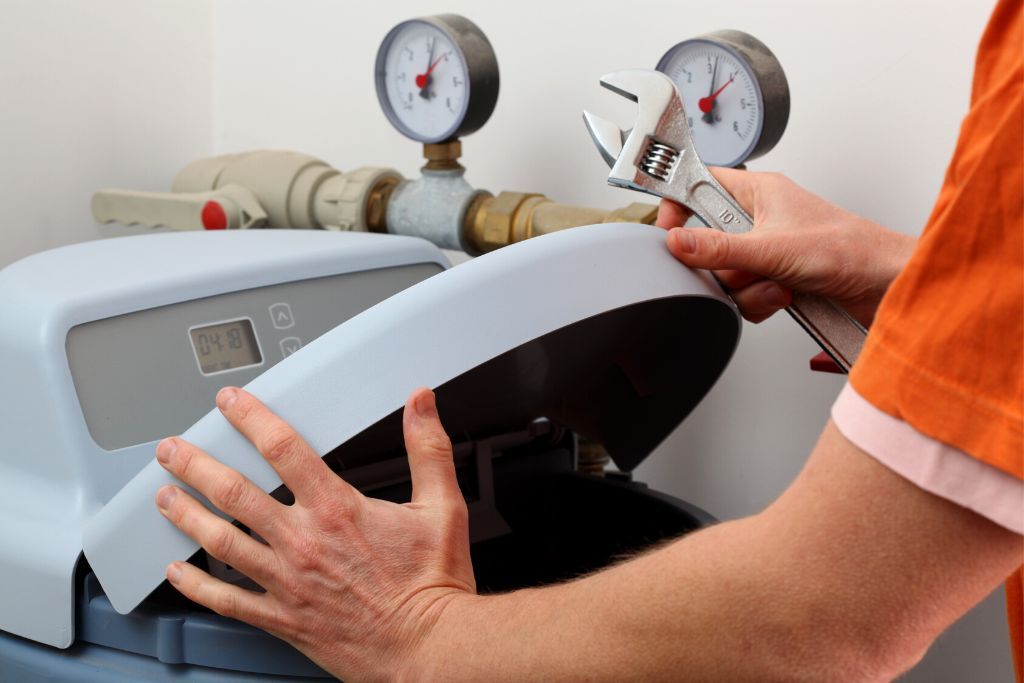
Softening the water in your home is a relatively simple process that can have some pretty profound effects on your comfort and cleanliness.
The following will explore a few reasons why installing a water softener system in your home might be the right move for you as well as examine a few indicators that you have hard water.
What Is Water Softening?
Water softening is a process in which minerals are taken out of your water. A wide range of minerals can remove, but some of the more common ones include calcium and magnesium.
What Is Hard Water?
Hard water is water that contains high amounts of minerals like calcium and magnesium. You might think that extra minerals aren’t a bad thing, and in many cases, you’d be right.
Having some minerals in your water is a good thing and can even help you meet your mineral needs if you drink the water.
Hard water refers to instances where these minerals exist at problematic levels. The hardness of water is determined by the concentration of dissolved minerals.
Water is considered soft when it has 0 – 60 milligrams per liter of calcium carbonate. Moderately hard water is water with somewhere between 60 and 120 milligrams per liter.
Hard water is water containing between 121 and 180 milligrams per liter, and very hard water is any water with more than 180 milligrams of minerals per liter.
The Process Of Cleaning
Often the first thing that people notice when they’re moving from one home with a certain type of water to another home with another type of water is how differently soap behaves.
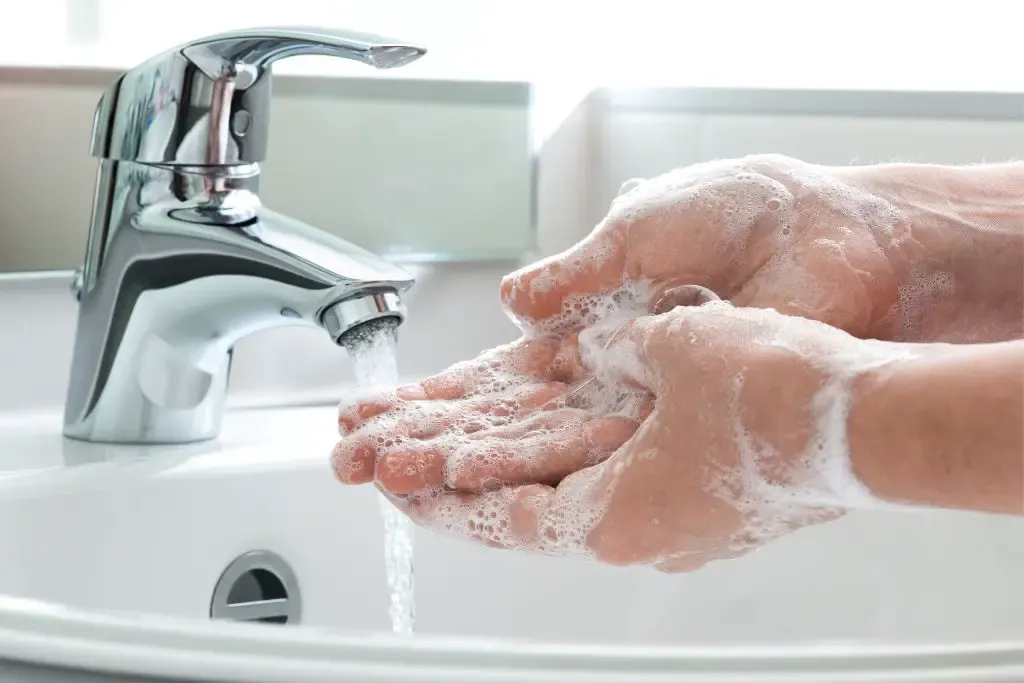
In hard water, soap is far less effective than it is in soft water, and a large portion of this is because hard water makes it a lot tougher to rinse the soap away.
Soap is also more likely to form curds or soap scum. Detergent can also be negatively impacted by hard water, though, often, the effects are less extreme.
As a result of this, you end up using far more soap or detergent to clean things when you have hard water compared to when you have soft water.
This applies to your body and hair as well. If it’s harder to get the soap off your skin, you might be wandering around with a thin film of soap on you, contributing to skin problems and poor pH levels.
Soap residing on the skin can also trap bacteria to the surface of your skin, disrupting your microflora balance and increasing the risk of breakouts.
People with dry or sensitive skin tend to notice hard water in particular as the minerals left on their skin after a shower absorb some of the moisture which is naturally found on their skin.
Your hair might appear dull or even feel a bit rigid or still due to soap residue.
Some people find that this residue results in scalp problems like dandruff or the urge to scratch their scalp throughout the day, which can leave work and romantic prospects put off.
Your Pipes’ Life Expectancy
Beyond the impacts on things you wash with soap, hard water can be damaging to your plumbing.
Your pipes want you to know that your home’s water quality can be a major problem.
The minerals in hard water can deposit in pipes and build up over time. This is referred to as scale.
As time passes and more and more scale builds up, your pipes can become clogged. Your water heater’s efficiency will also be negatively impacted by scale.
Aesthetics
When it comes to the look of things around your home, hard water can also have an impact. You might notice water spots on your bathroom mirror, drying dishes, or shower walls.
These spots are the result of hard water. If you notice calcium or lime deposits around your faucet or tap, this is likely also the result of harder water.
Soft water doesn’t leave a visible residue like that. Any clothes washed in harder water can develop a greyish or yellowish tone or feel uncomfortably still.
Softer water makes cleaning things like the sink and the shower much easier, given that there isn’t a thick coating of crud to be scrubbed away.
Often people notice that they no longer need the harsh and toxic cleaning chemicals they were using before to get a pristine shine when they have soft water.
Energy Bills
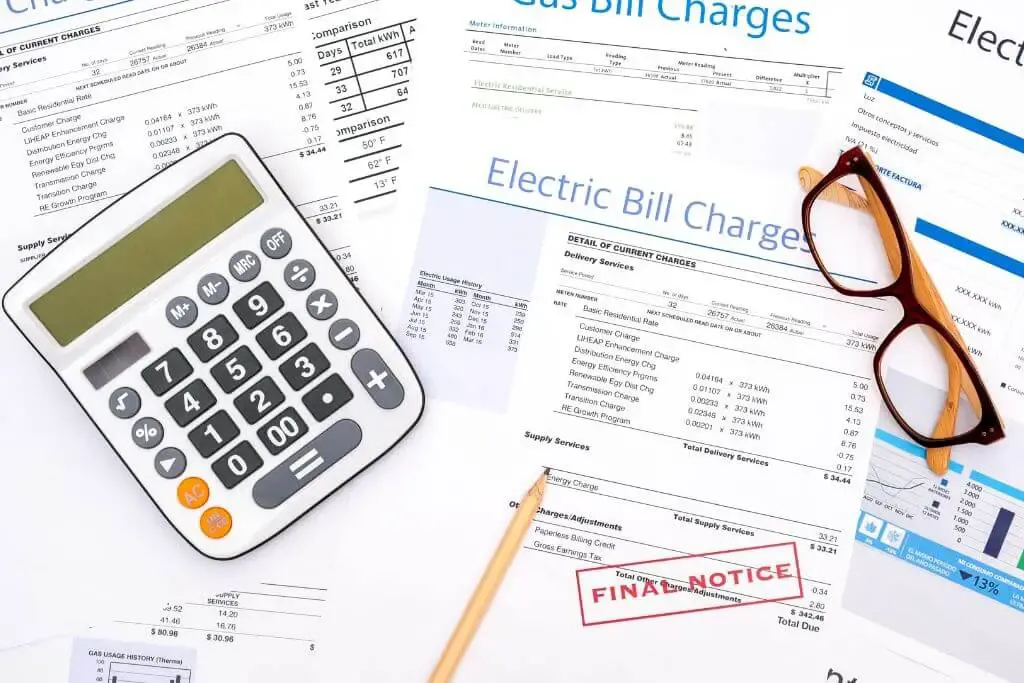
Given the build-up of scale and the decreasing efficiency of plumbing-based systems in your home, you can bet that hard water is imparting your utility bill.
Softer water allows appliances to run more efficiently, particularly the washing machine, the dishwasher, and the water heater.
Most people notice an improvement in the cost of their utilities when they soften their water.
Given the current economic situation that many are facing and the skyrocketing price of basic energy costs, many people are looking for ways to trim down their expenses.
Water Taste
This last point is highly subjective, but many people prefer the taste of softer water over harder water. Often your preference depends on what water you drank growing up.
If you’re a big fan of cooking, you might also notice a change in the taste of meals prepared with softened water versus hardened water.
Pasta, quinoas, oatmeals, and boiled vegetables, in particular, can be affected, seeing as they absorb so much water while they’re cooking.
The above information should have outlined several benefits that come from having softened water.
It’s important that you don’t immediately go out and buy a water softener without first testing your current water.
You want to have an idea of where you’re at so you can pick the best system for you. While you’re at it, why not have your water tested for toxins as well?
Hybrid systems do exist that can help you be rid of problematic additives like chlorine and nasty contaminants in the public water system like pharmaceutical drugs and pesticides.
Final Thoughts
When it comes to installing a water softening system, it is a task you can do yourself. This being said, if you feel uncomfortable with the task or unconfident for any reason in your ability to set it up, reach out to a professional.
You should never attempt a home repair or renovation project yourself if you feel like you can’t.

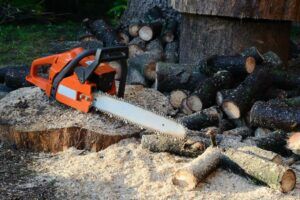

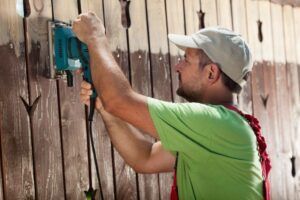
![9 Best Pole Saws of 2023 [Ultimate Guide] 9 Best Pole Saws of 2023 [Ultimate Guide]](https://handykeen.b-cdn.net/wp-content/uploads/2021/03/best-pole-saw-300x200.jpg)

